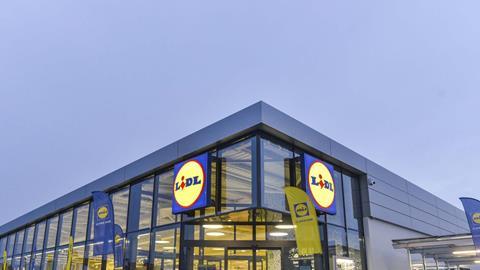Kantar sales analysis shows price rises are already affecting the way consumers buy groceries
Supermarket sales have risen at their fastest rate since April 2021 as the sector continues its post-pandemic recovery, but price inflation is already having a significant impact on the market.
According to Kantar figures for the 12 weeks to 7 August, take-home grocery sales rose by 2.2 per cent. The latest numbers come as grocery price inflation hits 11.6 per cent over the past four weeks, the highest level since Kantar first started tracking the data this way in 2008.
Fraser McKevitt, head of retail and consumer insight at Kantar, said: “As predicted, we’ve now hit a new peak in grocery price inflation, with products like butter, milk and poultry in particular seeing some of the biggest jumps. This rise means that the average annual shop is set to increase by a staggering £533, or £10.25 every week, if consumers buy the same products as they did last year.
“It’s not surprising that we’re seeing shoppers make lifestyle changes to deal with the extra demands on their household budgets. Own-label ranges are at record levels of popularity, with sales rising by 7.3 per cent and holding 51.6 per cent of the market compared with branded products, the biggest share we’ve ever recorded.”
ELP and value push
With inflation high and a potential recession later this year, comparisons against the last financial crisis are becoming visible. “People are shopping around between the retailers to find the best-value products, but back in 2008 there was much more of a reliance on promotions,” McKevitt said. “It’s harder to hunt out these deals in 2022 – the number of products sold on promotion is at 24.7 per cent for the four weeks to 7 August 2022, while 14 years ago it was at 30 per cent. Instead, supermarkets are currently pointing shoppers towards their everyday low prices, value ranges and price matches instead.
“Over the past month we’ve really seen retailers expand and advertise their own-value ranges across the store to reflect demand. Consumers are welcoming the different choices and options being made available to them on the shelves, with sales of own-label value products increasing by 19.7 per cent this month. As an example, Asda’s Just Essentials line, which launched this summer, is already in 33 per cent of its customers’ baskets.”
Discounters gaining share
Lidl remains the fastest-growing grocer, with sales up by 17.9 per cent over the latest 12 weeks, raising its market share to 7 per cent. Boosted by the popularity of its dairy goods and bakery lines, this is the retailer’s highest rate of growth since September 2017. Aldi also performed strongly, and its market share increased by 0.9 percentage points to 9.1 per cent. Together Lidl and Aldi have gained 1.8 per cent of British grocery sales over this period, representing a £2.3 billion annual shift in spending towards the discounters.




